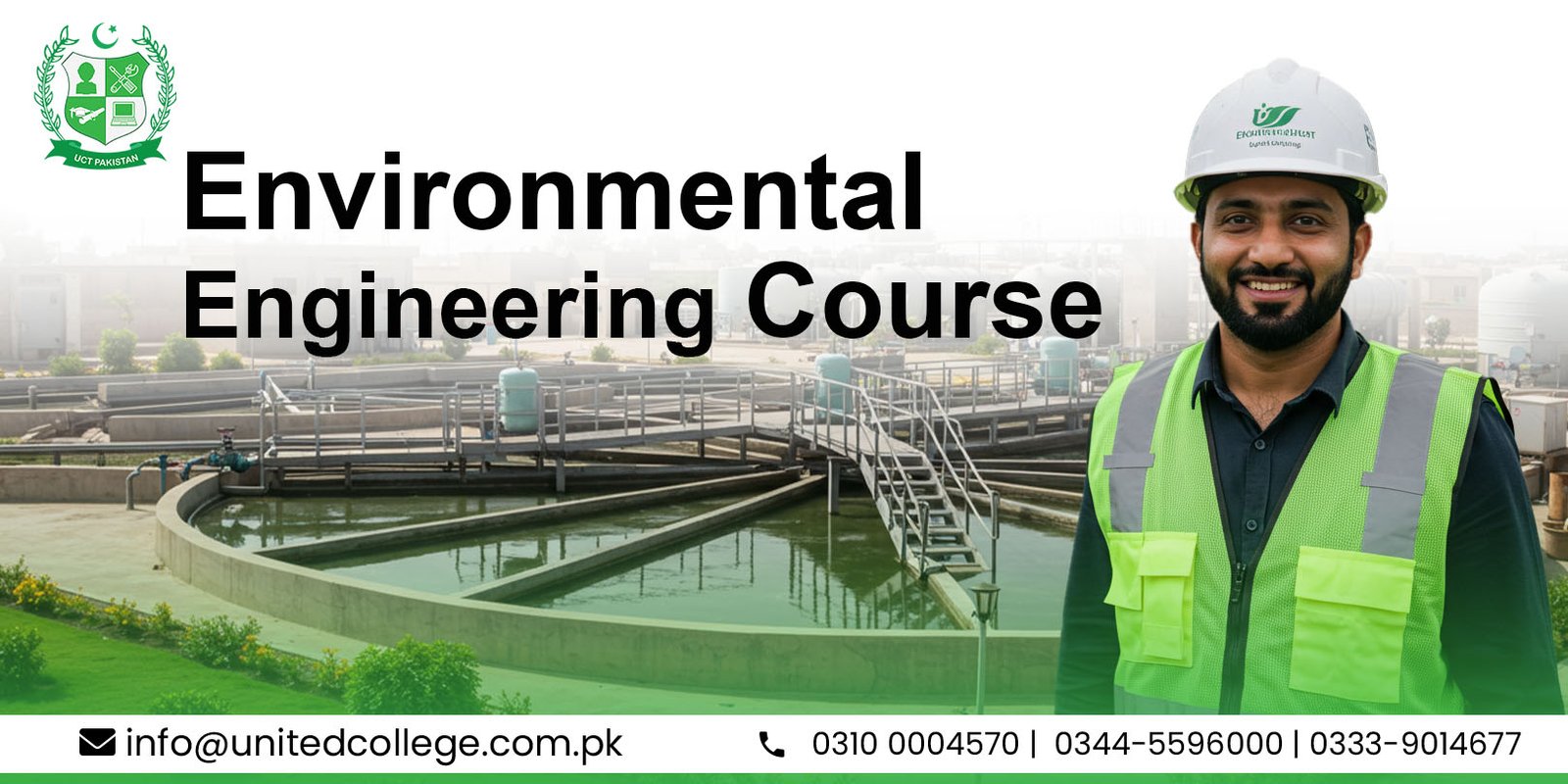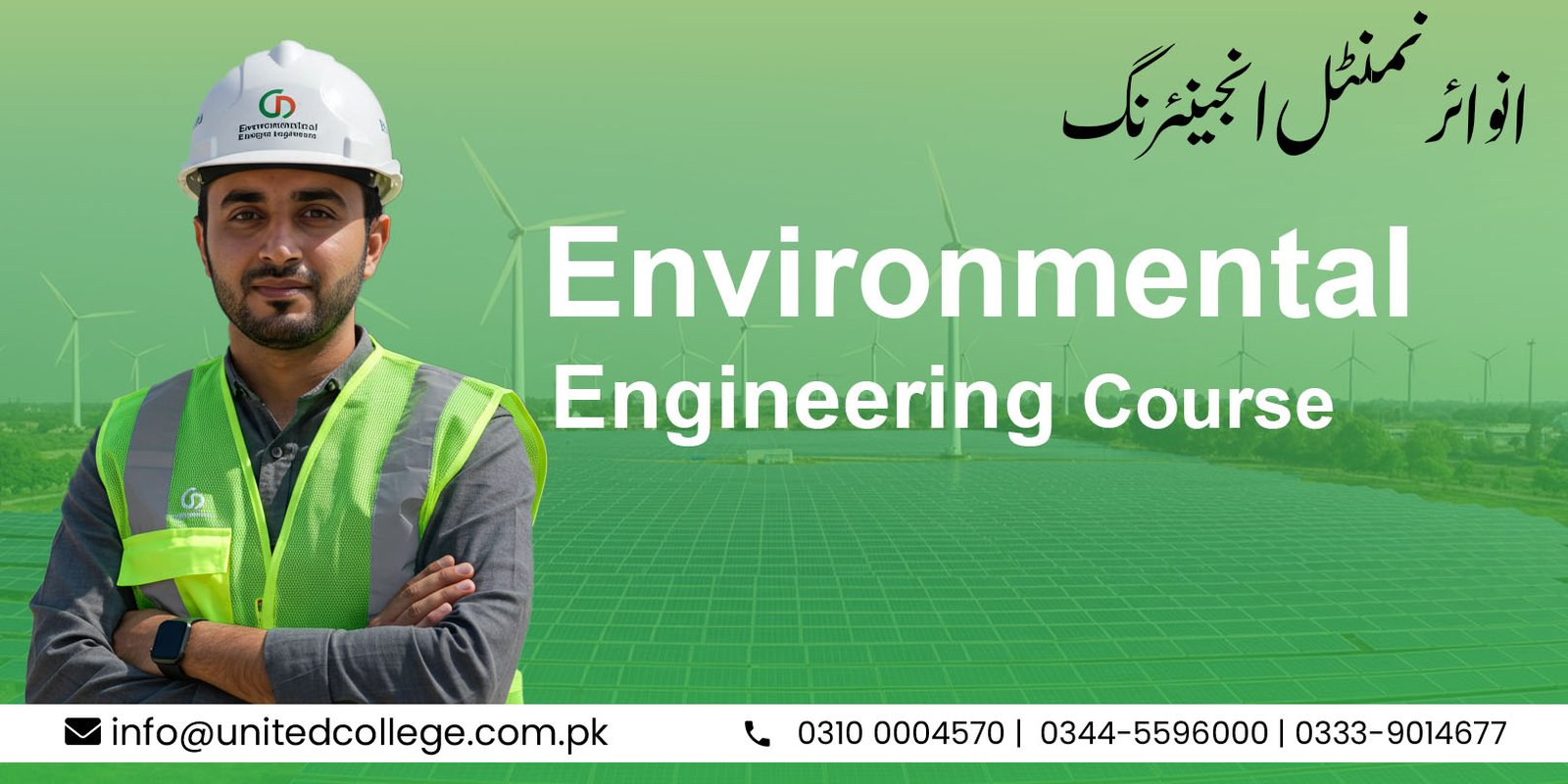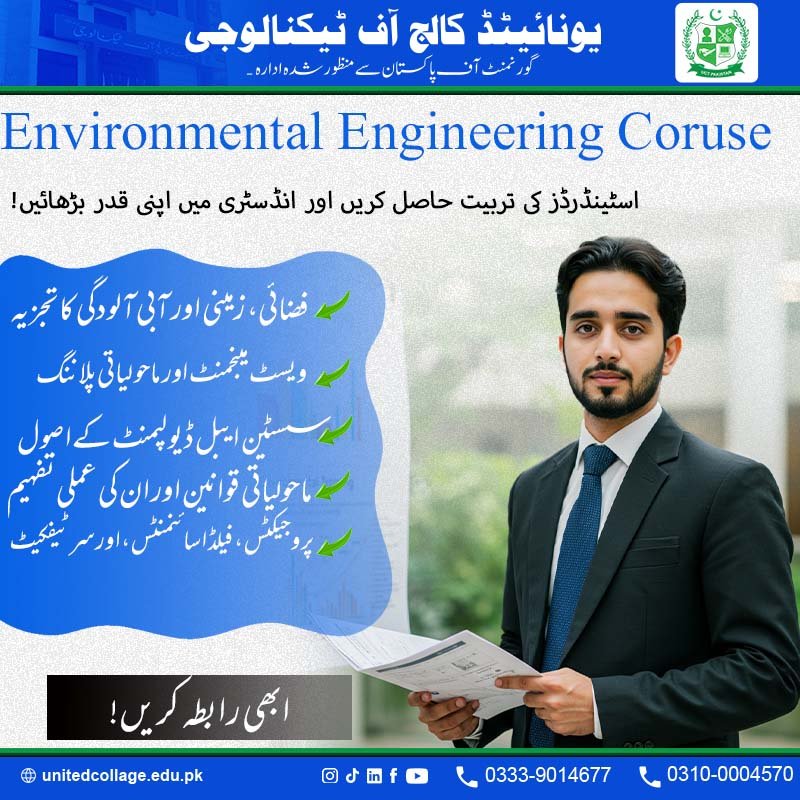

In today’s world, where every construction project, industry, and city planning effort is under pressure to meet environmental standards, the Environmental Engineering Diploma Course in Rawalpindi offered by United College of Technology (UCT) becomes a smart and timely choice. This course doesn’t just teach theory—it turns you into a practical problem solver ready to work on real environmental challenges that matter for businesses and communities alike.
Enrolling in the Environmental Engineering Diploma Course in Rawalpindi means you learn skills that directly match what employers in Pakistan and abroad look for: the ability to manage pollution, handle environmental impact reports, and advise projects on compliance with laws. With growing urban development and stricter regulations, industries urgently need trained professionals who can protect both the environment and business interests—exactly what this diploma prepares you to do.
UCT keeps this diploma course focused and relevant to today’s market. The course includes two powerful modules:
The Environmental Engineering Diploma Course in Rawalpindi stands out because it takes you beyond books. UCT’s approach includes field visits to active industrial plants, workshops using modern environmental testing tools, and projects addressing real local issues. You’ll learn how to prepare reports, measure pollution, and suggest solutions—all things that hiring managers look for on your CV.
Sustainable building is a rising trend across Pakistan and the world. This section of the Environmental Engineering Diploma Course in Rawalpindi gives you insights into using eco-friendly materials, planning energy-efficient designs, and meeting green building certification requirements. It makes you valuable for roles on construction sites that want to minimize environmental impact.
You’ll also learn practical techniques to monitor air and water quality using modern equipment. Understanding national and international pollution control standards is essential to help industries remain compliant and avoid fines. This part of the diploma connects science directly to everyday industry needs.
Graduates of the Environmental Engineering Diploma Course in Rawalpindi have strong job opportunities across sectors like manufacturing, construction, consultancy, and government projects. You could work as an Environmental Compliance Officer, HSE Technician, or Sustainability Coordinator. Thanks to UCT’s ISO-certified diploma and strong affiliations, you can even explore jobs abroad where skilled professionals are in demand.
UCT’s diploma carries certifications from NAVTTC, NUTECH, and TTB, supported by ISO certification. This means your qualification isn’t limited to Rawalpindi or Pakistan—you can use it to apply for further studies or professional roles internationally. For employers, it shows that you’ve learned skills meeting industry-recognized standards.
Whether you’re a fresh intermediate pass student wanting to start a career, a diploma holder in civil engineering, or someone already working in health and safety who wants to add environmental compliance to your skills, this course is open to you. All you need is intermediate-level education and genuine interest in sustainable development and environmental protection.
UCT understands students often balance jobs, family, or other studies. That’s why the Environmental Engineering Diploma Course in Rawalpindi is offered in evening and weekend classes over about 6 months. This flexibility helps you gain new skills without sacrificing your routine.
The real strength of UCT isn’t just in the syllabus, but in how it’s delivered:
Joining the Environmental Engineering Diploma Course in Rawalpindi is about more than just getting a job. It’s about building a future where your expertise helps industries grow responsibly, keeps communities safe from pollution, and supports Pakistan’s commitment to sustainable development. It’s a chance to make a living while making an impact.


.jpg)
.jpg)
.jpg)
Yes, thanks to UCT’s recognized affiliations with NAVTTC, NUTECH, TTB, and ISO certification.
No, intermediate-level education is enough; the course covers fundamentals to advanced applications.
Jobs like Environmental Compliance Officer, HSE Technician, Sustainability Consultant, and similar roles in industries and projects.
Usually around 6 months, with evening and weekend class options.
Yes, through strong industry connections and practical, project-based training.













